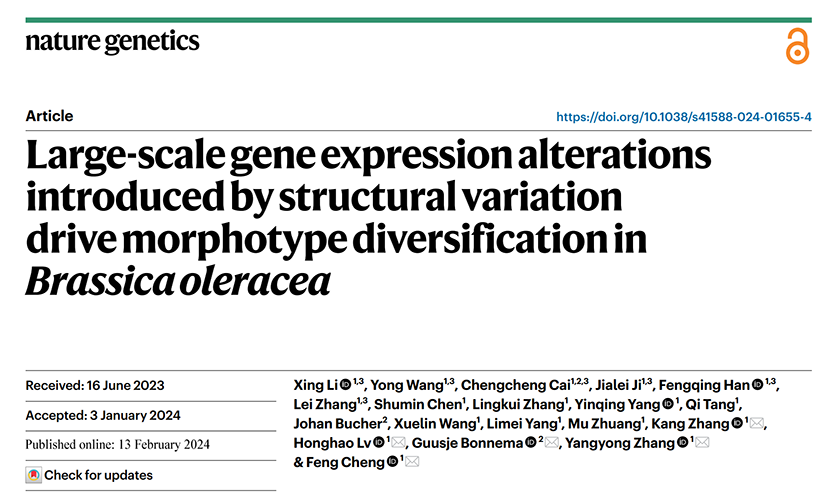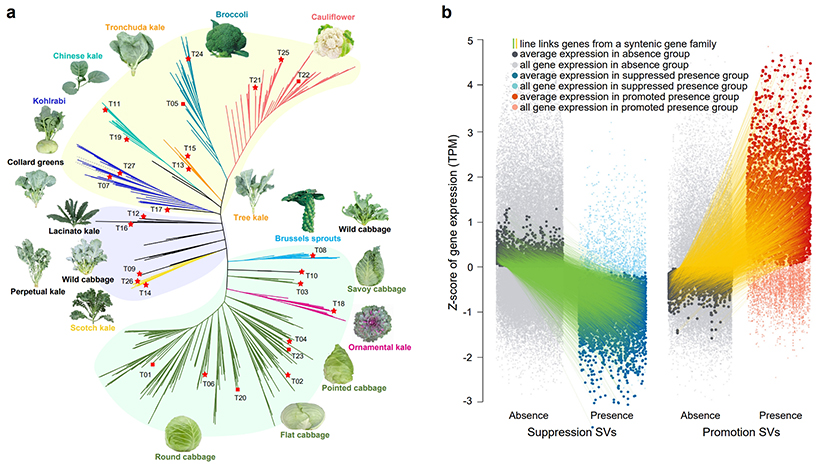Recently, the Molecular Design Breeding Innovation Team and the Genetic Breeding Innovation Team for Brassica vegetables, in collaboration with the Growth and Development Team of the Plant Breeding Department at Wageningen University in the Netherlands, have constructed a pan-genome of Brassica oleracea encompassing all variant types. They have unveiled the hidden driving force behind the rapid diversification and domestication of morphological types in Brassica vegetables. The related research findings have been published in Nature Genetics.

Utilizing resequencing data from over 700 wild and variant cover materials of Brassica oleracea, the study constructed a phylogenetic tree, identifying two independent domestication routes for numerous Brassica variants. They built a pan-genome and a graphical genome encompassing all variant types of Brassica oleracea and found that structural variation (SV) is a crucial regulatory factor for a substantial alteration in gene expression dosage. SV has propelled the rapid domestication of diverse morphological types in Brassica vegetables, acting as a "molecular accelerator" for Brassica diversity evolution. The regulatory model established in this study, "structural variation-gene expression alteration-phenotypic variation," deepens the understanding of the mechanism by which SV regulates the formation of morphological traits, which is of significant importance in answering the fundamental scientific question of "how plant phenotypic diversification occurs." Furthermore, for the first time, the research reveals that changes in gene expression are a crucial target of domestication beyond gene loss or functional variation, presenting a new pattern in domestication. This has implications for the study of domestication in other crops.

This research was supported by the National Key Laboratory of Vegetable Biology Breeding, the National Natural Science Foundation of China, the Science and Technology Innovation Project of the Chinese Academy of Agricultural Sciences, the Key Laboratory of Biology and Genetic Improvement of Horticultural Crops of the Ministry of Agriculture and Rural Affairs, and the Netherlands TKI project.
Link:https://www.nature.com/articles/s41588-024-01655-4